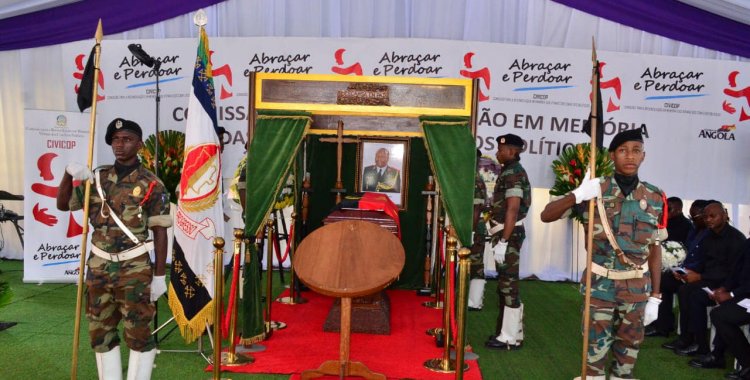The Associação Memória 27 de Maio (M27), in a video released this Monday to mark the 47th anniversary of this date, considered that the investigation into the delivery of the remains of the victims to their families fails due to the lack of transfer by the Commission to the Implementation of the Reconciliation Plan in Memory of the Victims of Political Conflicts (Civicop).
"There is a lack of transparency, both in the construction of mass graves and in the collection and analysis of genetic evidence, as well as in determining the causes of death", says the orphans' association.
He also regrets the "lack of care with which the bones are collected", citing images released by Public Television of Angola (TPA), noting that in Angola "there are no technical means to identify DNA collected from bones".
"These are gross errors that must end and this body must accept family representation in the teams that work on mass graves", consider the orphans of 27 de Maio, asking for "truth and transparency" from Civicop.
This Monday, Angola marks 47 years since the events of May 27, 1977, the date of the alleged attempted coup d'état, apparently led by Nito Alves – Minister of Internal Administration from independence (November 11, 1975) until October 1976 – and which was violently repressed by order of the then President, Agostinho Neto, resulting in the execution of thousands of people.
Six days earlier, on May 21, the Popular Movement for the Liberation of Angola (MPLA) expelled Nito Alves from the party, which led the former minister and several supporters to invade the Luanda prison to free other sympathizers, taking control at the same time of the national radio station, becoming known as "fractionists".
Troops loyal to Agostinho Neto, with support from the Cuban military, ended up establishing order and arresting the rebels, followed by what became known as the "purge", with the elimination of the factions, with around 30 thousand people were killed, most of them without any connection to Nito Alves, as stated by Amnesty International in several reports on the subject.
In the same video, made public on social media, M27 states that 47 years later the events of May 27th "are finally" being debated in the public square.
Also to mark the date, the president of the National Union for the Total Independence of Angola (UNITA), Adalberto da Costa Júnior, expressed, on social media, "respect and sadness" for the victims, saying that the day "invites us to reflect on the historical importance and justice, honoring those who suffered and lost their lives".
"Let us continue to fight for a future of freedom, democracy and respect for human rights", said the opposition leader.
UNITA also accused Civicop of "violating the principles that were its origins". The main opposition party disassociated itself from this entity in December last year, following reports aired by TPA that showed grave excavations in Jamba, former UNITA territory.
For its part, the Democratic Bloc (BD), without parliamentary representation, highlighted the importance "of not forgetting those responsible for these atrocities, many of whom remain alive and without any public regret, politically justifying their actions to maintain power".
This party also criticized Civicop and proposed "the creation of a Truth Commission, composed of impartial citizens and in a democratic political context, as the only way to do justice to the memory of the victims and those who suffered torture and inhumane treatment".
"Only in this way will the conditions be created for effective forgiveness and to ensure that degrading practices do not occur again", said the BD.
In 2019, the President, João Lourenço, created Civicop, in charge of the general plan to pay homage to the victims of the political conflicts, which occurred in the country between November 11, 1975 and April 4, 2002, when the civil war ended, and two years later he apologized to the families, on behalf of the State.







